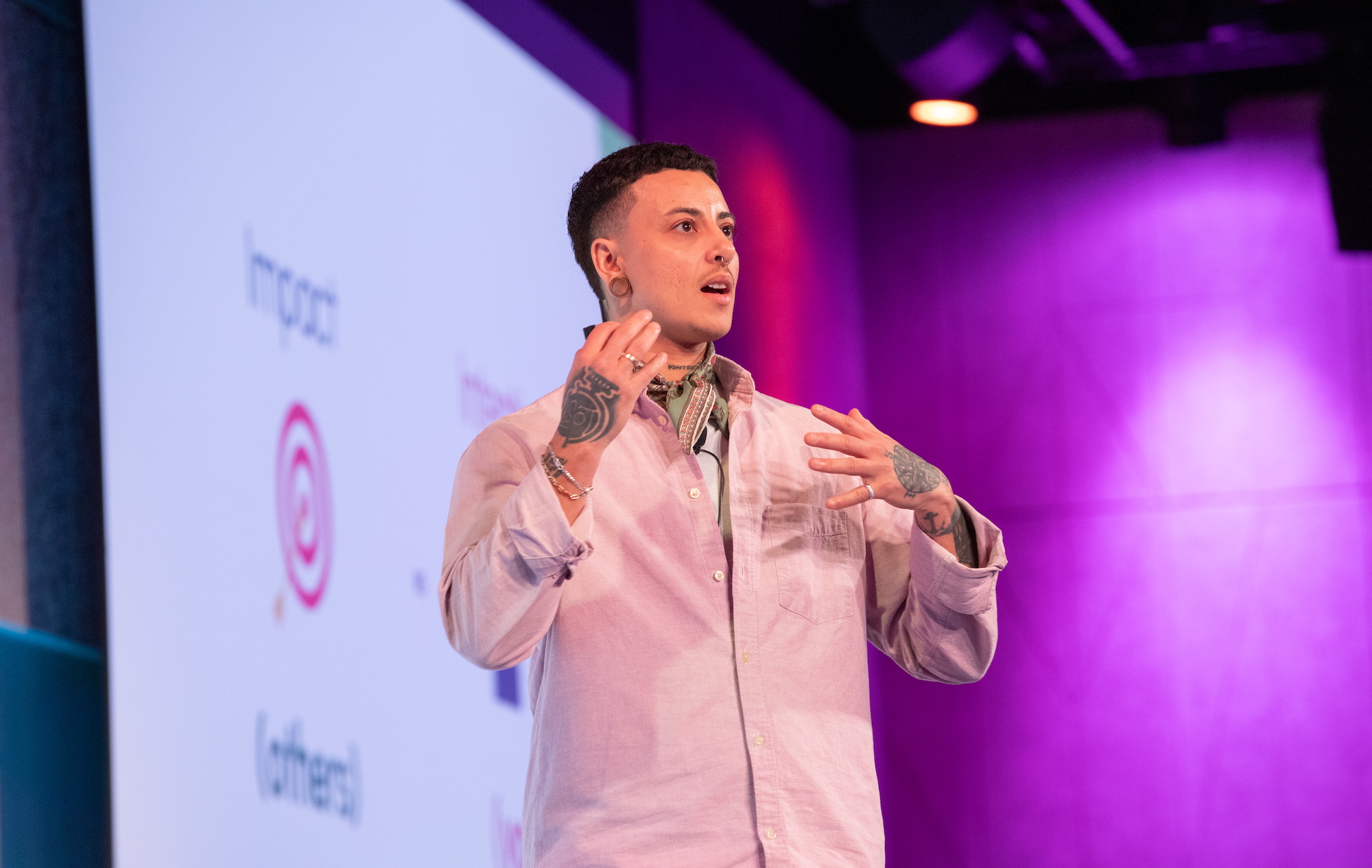“You’ll be on in roughly 10 minutes.” the Salon Owners Summit A/V team tells me quietly. Here I am, after a little over six months of brainstorming, ideation, research, and preparation culminating in a keynote on the power of cultivating inclusive spaces for clients and employees alike. As the adrenaline starts rushing through every cell of my body in anticipation, my heart rate reaches what feels like a cardio training zone. I’m seriously considering logging my now incessant pacing as my official workout for the day.
Desperately trying to block out Nina Tulio’s content so as not to blank on mine, I count my breaths, waiting for my cue. The irony of it all is that I could very much use some of Nina’s advice for taking steps to move from fear to confidence in this moment. She’s talking about:
- Knowing who you are and what you stand for
- Creating actionable core values to drive motivation and guide your course of action
- Focusing on the things that you can control
Round of applause. Nina exits the stage, leaving an energised, motivated, and uplifted crowd behind her.
“All you.”
Equipped with a synthesised account of my experience as a trans, queer, biracial, neurodivergent person, data and my hope for a more accountable, inclusive future, I’m ready to turn the room into a space of mutual, kind, compassionate learning. Mutual because I would be learning, too — to let myself be truly perceived.
At the beginning of the session, I invite everyone to get uncomfortable with me, to have a real conversation about diversity, equity, inclusion, and belonging (DEIB). I ask, “Can we make this a brave space together?”
What happened next? I’m not quite sure. But it felt like I was on a train that couldn’t stop, dancing between anecdotes from my life, report findings, questions and actionable takeaways. Here are some of them.
Impact vs Intention
When the words we choose and the experiences we create are criticised for their lack of understanding, compassion, or inclusiveness, and we prioritise comfort over learning, it becomes easy to hide our shame behind our intentions.
In his book “This vs That: Better Thinking, Better Choices, Better Leader,” Jay Williams explains that “When we defend and explain, our emotional brain has usually hijacked our rational brain in an attempt to protect us.” He continues to say, “Defending and explaining is about self-preservation and is often motivated by fear, guilt or self-doubt.”
If, instead of choosing to defend and explain ourselves with our intentions, we decide to meet what has been brought to our attention with curiosity and accountability, we will be better able to defuse negative emotions, find understanding, build connection, show empathy and create a favourable environment for forward-looking and productive conversations. I invited the audience to engage in the Learning one (also called Growth Zone).
The Three Learning Zones
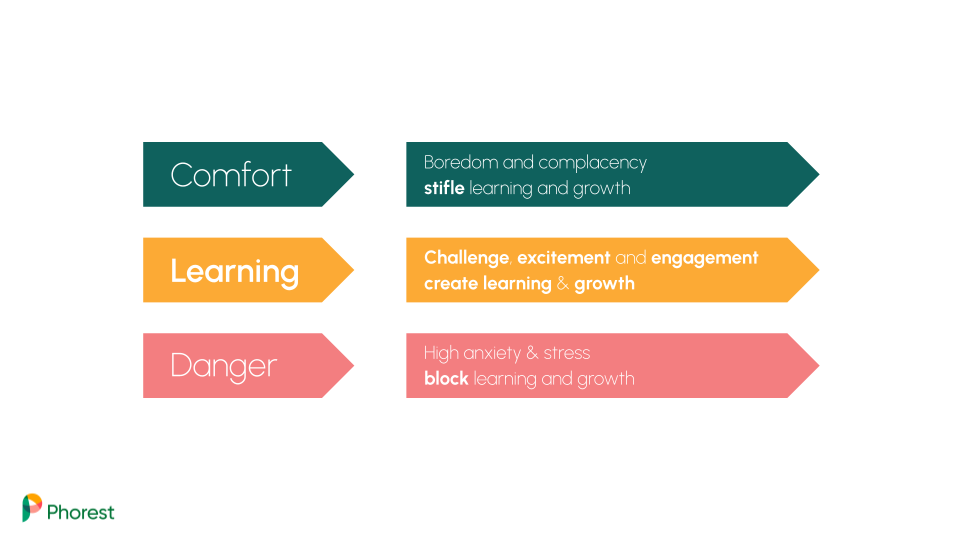
A Rich History of Providing Opportunities to Those Otherwise Excluded
Blending personal experiences with compelling statistics and even some historical facts about the industry, the next segment of the keynote touched on how the hair and beauty industry was built on affirming people:
- Elizabeth Arden: her signature salon was founded on the idea of offering makeovers to her clients
And giving opportunities to those whom society deemed outsiders, such as:
- Martha Mathilda Harper: a domestic servant sent away by her father at age seven, Martha Mathilda Harper launched modern retail franchising and built an international network of 500 franchised hair salons that emphasised healthy hair care
- Madame CJ Walker: born on a plantation, orphaned at age seven, married at 14, struggling financially, facing hair loss, and feeling the strain of years of physical labour, Madame CJ Walker found a sense of purpose and belonging through the launch her own line of hair products and straighteners for African American women
Remembering and learning about the hair and beauty industry’s long history of welcoming and providing opportunities to those typically relegated to the margins of society can be a powerful guide or north star for salon professionals looking to take more steps within the DEIB space.
All Identity Groups Cover, but Some Cover More
After sharing more stories and personal experiences, I introduced the audience to the concept of covering.
Covering: “Ways in which individuals downplay known disfavored identities to blend into the mainstream.”
Individuals will often “cover” regardless of their identity and environment, and sometimes by proxy. It can be:
- Appearance-based: altering the way you present
- Advocacy-based: not defending or promoting the interests of one’s group
- Affiliation-based: minimizing behaviours associated with one’s identity often to negate common stereotypes
- Association-based: avoiding contact with other group members
When I say between alienation and belonging, I mean by that: will the hair and/or beauty business I walk into continue to make me anxious, hyperaware and self-conscious, much like many other spaces I walk into in the world? Or will it feel welcoming and safe?
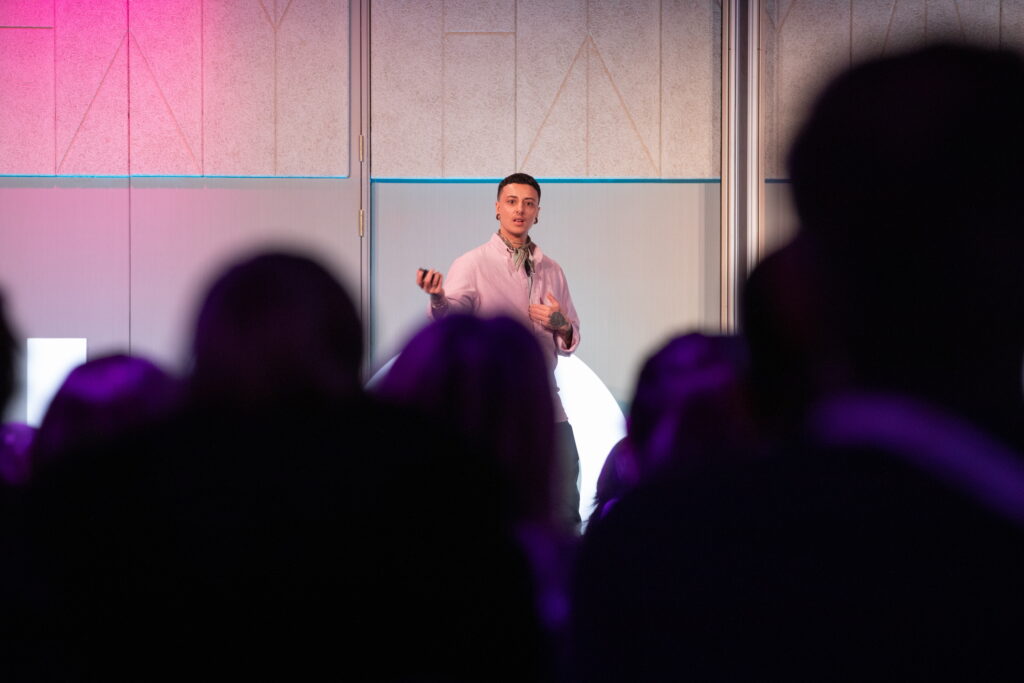
According to Deloitte’s report Uncovering Culture: A Call to Action for Leaders, “Despite the increased attention paid to issues of diversity, equity and inclusion over the past ten years, 60% of US workers report covering at work in the last 12 months.”
Those with more marginalised identities were more likely to cover at work. However, more than half of those with no discernable marginalised identities still reported covering at work.
Percentage of respondents who cover broken down by the number of marginalised identities reported:
- 5-9: 71%
- 3-4: 57%
- 1-2: 56%
- 0: 51%
Pausing before diving into the actionable steps for salons and spas to take in their business to foster a culture of belonging, I invited the audience to reflect on the following question — which you can reflect on, too:
What is one way or one type of pressure that your salon or spa might be unknowingly imposing on your staff or clients to minimise their identities?
Never Just a Haircut or Beauty Service
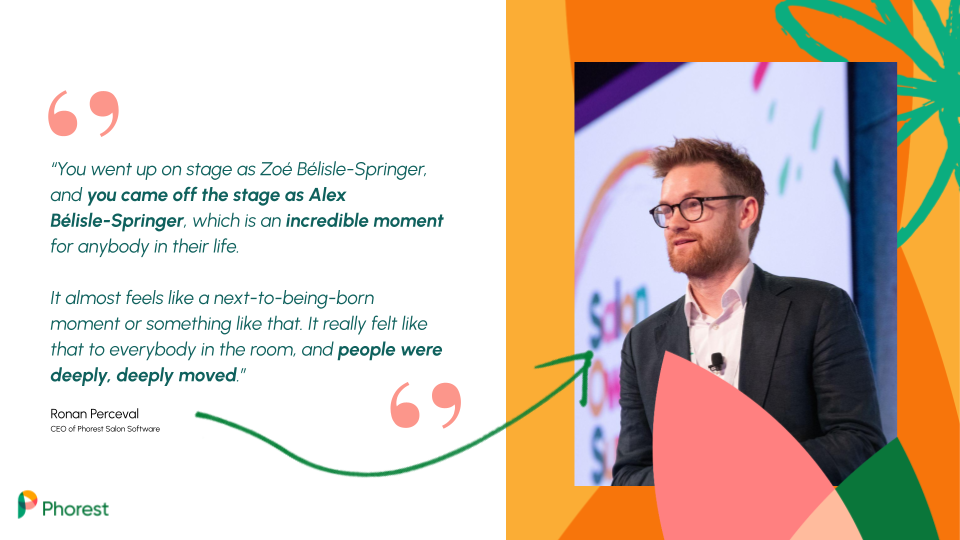
We all seek to look on the outside how we feel on the inside, but not everyone receives the same treatment by society for pursuing that. Unfortunately, the thing about anxiety and hyperawareness that comes from having felt othered and marginalised on big and small scales is that it can make it hard to move through the world and show up fully in every space for safety reasons. Because let’s face it: the world is inherently unsafe for many folks.
Navigating a world systematically designed to cause me discomfort or make me question my worth — being enough to be truly understood and appreciated, for my feelings to be considered, to be cared for… or truthfully, even loved — has not been easy.
However, as I mentioned on stage, uncovering was transformative for me. Uncovering, unmasking, coming out as trans and loving the parts of myself I never knew how. But there was still one gap to bridge.
And that meant reintroducing myself.
As Alex.
What if you could, through your beauty business, not only make someone feel good and look great but also help them feel like they belong, at the very least within the vicinity of your walls?
Key Takeaways, Steps You Can Take & Further Resources
Takeaways
- Centering the experiences of marginalised communities in policies, processes and design choices can help salons and spas better approach inclusivity and meet the needs of all their staff and clients
- Building psychological safety, relationships and trust with staff and clients is crucial for creating a supportive and inclusive environment
- Covering (downplaying disfavored identities) is still prevalent in the workforce, and businesses should strive to create an environment where individuals feel comfortable being their authentic selves
- Workers and inclusive teams, compared to those in non-inclusive teams, are 7x more likely to report the workplace has positively or very positively impacted their mental health (46% vs 6%) 1
- Diverse workplaces generate 19% more innovation revenue than less diverse environments 2
1 Diversity Council Australia / “Inclusion and Equity for Workers with Disabilities” by Serena Huang
2 Boston Consulting Group
7 Steps You Can Take Towards Inclusivity:
- Audit and make changes to your policies and processes based on equity rather than equality
- Adopt inclusive language as the default in your salon or spa
- Normalise asking about someone’s pronouns and sharing yours — use your pronouns in email signatures, social media, and when introducing yourself.
- Don’t assume someone’s gender identity and use “they” when you don’t know what pronouns someone uses.
- Audit and educate yourself on any perspective you do not have in your circles
- Seek out collaborative work with transgender organisations and advocates, disability advocates, LGBTQIA+ charities and organisations, occupational therapists, sensory integration specialists, ASD professionals, DEIB experts and/or gender specialists
- Commit to moving from passive allyship to active allyship
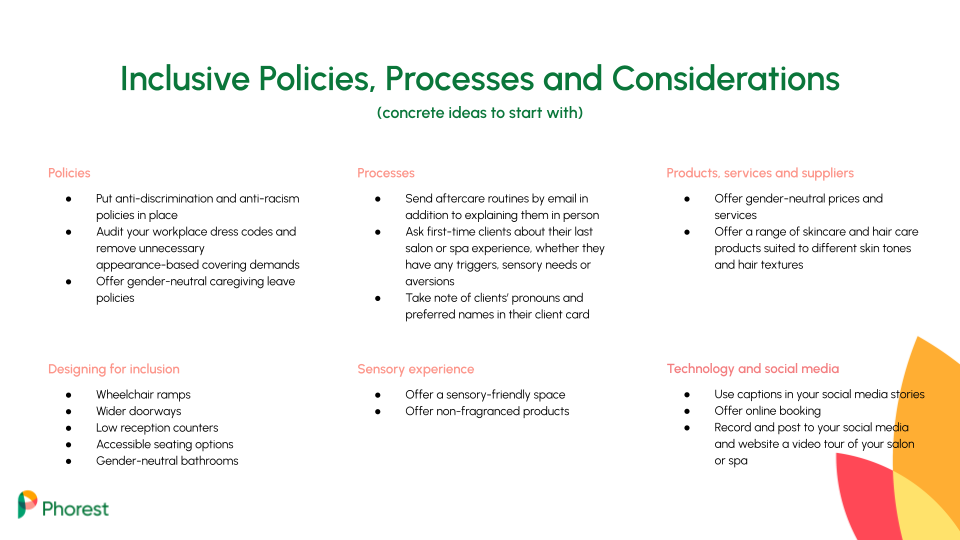
Industry Organisations:
- The Dresscode Project, helping salons and spas become gender-affirming spaces
- Strands for Trans, bringing gays, straights, women, men — anyone — together to create more trans-friendly barbershops and hair salons
- Texture Education Collective, an alliance of professional hair industry leaders working together to influence cosmetology state board licensing requirements and curriculums to be inclusive of all hair textures and all hair types
- Sensory Safe Solution, empowering industry professionals by providing a research-based curriculum which gives them knowledge and skills designed specifically for supporting guests with autism or sensory differences
And of course, Phorest Salon Software, a great partner to have with gender-inclusive features for your software!
Books:
- Beauty Imagined: A History of the Global Beauty Industry by Geoffrey Jones
- The Architecture of Disability: Buildings, Cities, and Landscapes beyond Access by David Gissen
- The Transgender Issue: Trans Justice is Justice For All by Shon Faye
- I’m Afraid of Men by Vivek Shraya
- People Change by Vivek Shraya
- Biased by Jennifer Eberhardt
Feeling the Salon Owners Summit FOMO?
Want to make sure you’re in the room to hear insightful talks like this next year? Get your tickets for the next Salon Owners Summit!
Keep Learning from the Experts
Read more of the 2024 Salon Owners Summit Recaps
